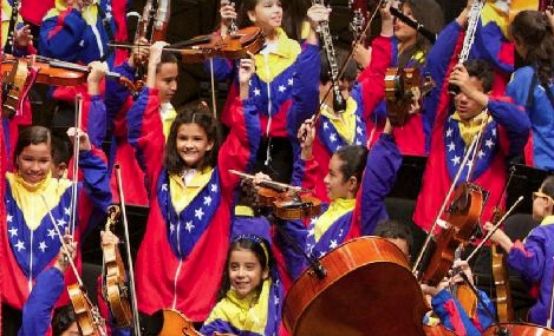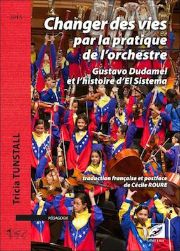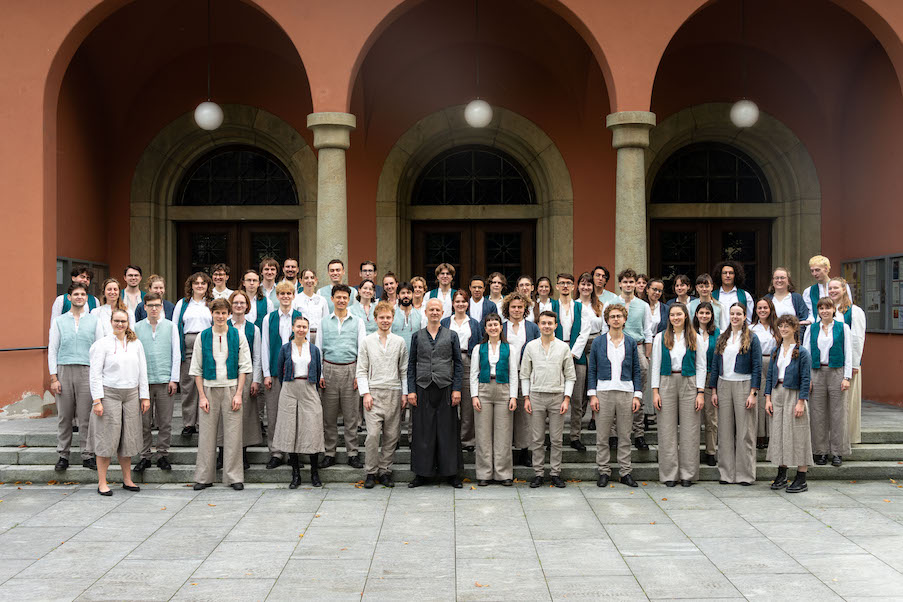Music can change lives
El Sistema combines musical education, social action and the fight against poverty and despair.

Describing the emotion and enthusiasm generated by the results of this vast program of education through music, writer and musician Tricia Tunstall also reveals its social dimension: orchestras and choirs represent schools for living in society, breaking the vicious circle of spiritual emptiness, loneliness and lack of recognition induced by poverty.
In 2015, more than half a million children in Venezuela, the vast majority from poor families, benefit from intensive musical education, singing and playing in hundreds of choirs, ensembles or orchestras of various levels, in more than 300 teaching venues ("núcleos"). Despite its name, there's nothing fixed about the system: in perpetual evolution, it was founded in 1975 by Venezuelan José Antonio Abreu, from a youth orchestra that became the Simón Bolívar Orchestra. Members of this orchestra were recruited from all over the country to create núcleos to improve the lives of children and young people through musical practice, not only to combat the dangers of impoverished childhood and reduce delinquency and violence, but also to make music the main instrument for the development of individuals and society. The young musician gains in self-fulfilment, self-confidence and self-discipline, while his family is energized by the pride and determination to support him. In this way, musical education can be both a means of personal emancipation and social transformation.
In the course of the book, we discover other aspects of the Sistema: the many facets of age-appropriate pedagogy, the annual national festivals for each instrument, the instrument-making and repair centers, the apprenticeship of mutual aid and support between young instrumentalists, as well as the sharing of skills and knowledge (very early on, they spontaneously teach those less advanced than themselves), the specific integration programs for handicapped children or the existence of núcleos in prisons.
The aim is not to create a plethora of professional musicians, but to educate them in listening skills and solidarity, even if the best elements can go on to develop a career - like conductor Gustavo Dudamel, or double bassist Edicson Ruiz, who joined the Berlin Philharmonic at the age of 17. Rather than educating instrumentalists to become soloists, teaching is based primarily on playing in an orchestral setting. The exceptional development of the Sistema in just a few years is living proof that everyone can be profoundly affected by classical music, without class exclusion. Similar initiatives are gradually springing up in other countries, including Switzerland. The book concludes with chapters on initiatives in the USA and France. A beautiful school of life, where joy and music are one with respect, discipline and the pursuit of excellence.
Some quotes from the book :
The number of Sistema children living in poverty is estimated at between 70 and 90 %. The program is entirely free for all children, provides instruments, teachers, uniforms to erase social differences and often nutritional and social assistance. ... The high school failure rate for Venezuelan children is around 26 %, compared with only 6.9 % in the Sistema. (p.44)
Abreu's fundamental hypothesis is that poor children, all children, will choose, if given the chance, the self-esteem and pride given by common becoming and artistic accomplishment rather than destructive, self-destructive alternatives. (p.202)
José Antonio Abreu, founder of El Sistema: "The orchestra is in fact a model of community, because it teaches both solidarity and social discipline. Above all, it is a means of encouraging the human development of children. ... It is not an artistic program, but one of human development through music." (p.75)
A young musician from the Puerto La Cruz núcleo orchestra: "The more cultivated our people are, the more our country will develop." (p.197)
Tricia Tunstall, Changing lives through orchestral practice. Gustavo Dudamel and the story of El Sistema, Translation by Cécile Roure, 304 p., € 19.00, Editions Symétrie, Lyon 2015, ISBN 978-2-36485-036-1









